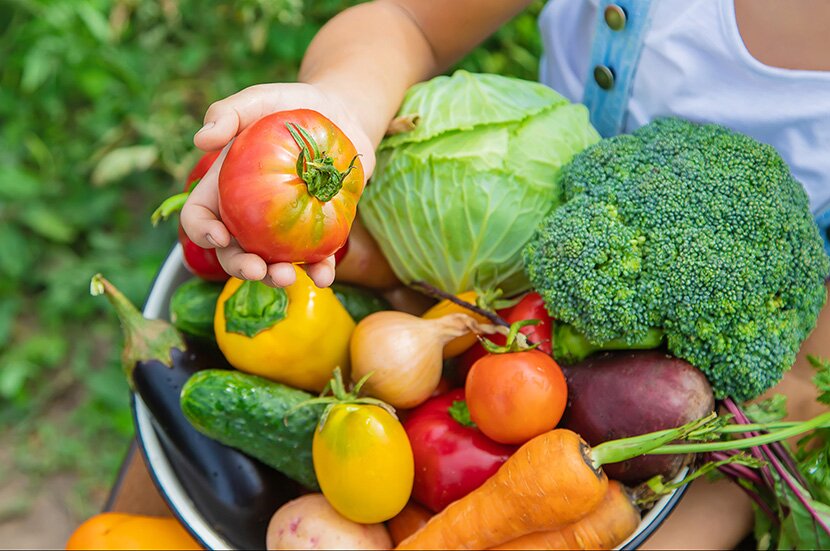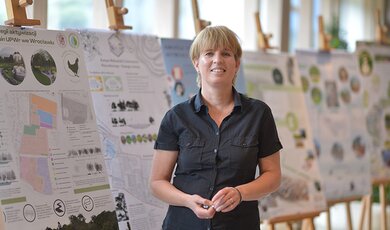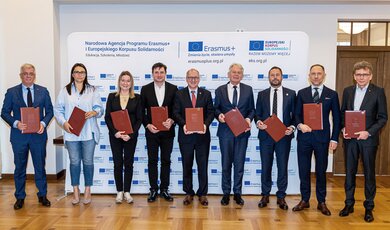
FoodSHIFT 2030: a plant-based diet is healthy and puts less strain on the environment
Promoting local agriculture and organic food, the FoodSHIFT 2030 project will leave behind more than the community and school gardens that have been established in Wrocław in recent years. – We can see that the community is ready to build a more local food system and we are convinced that the last 42 months of work are only the beginning of change, says Dr Małgorzata Świąder from the Institute of Spatial Management at UPWr.
- FoodSHIF2023 is about community gardens, maps of land that could be used for the establishment of such gardens, and a social movement that promotes such solutions
- The MFP model assesses the average land area needed to produce a given food product
Dr Małgorzata Świąder and Dr Marta Sylla from UPWr are leaders of the work package (WP) on food system research in metropolitan areas in the FoodSHIFT2030 project. This is an EU research project that brings together local governments, universities, non-governmental institutions from nine countries to develop innovative food system solutions.
FoodSHIF203: gardens, advice, research...
The FoodSHIF203 project entails community and school gardens that have been established in Wrocław in recent years, the creation of a map of land that could be used for the establishment of such gardens, and the social movement that promotes such solutions (also the Student Science Club at UPWr and their theses under the supervision of Dr Katarzyna Tokarczyk-Dorociak on working with communities and creating garden design concepts for them).
– Cities cannot feed themselves, so it is important to verify what kind of local market we have and what products we can successfully produce ourselves. Urban centres can be producers of food and we educate all residents in this aspect – explains Dr. Małgorzata Świąder.
The knowledge is already there. After all, what will remain of the project is the 'Edible City Wrocław' community, gardening advice on the 'Gardening Advisor - Foodshift2030 WRO Lab' profile, trained educators, a large portion of knowledge in the Knowledge Hub available on the FoodSHIFT2030 website, as well as scientific articles assessing the food system in nine European cities seeking to change and develop the food system .
– In the study on Wrocław, led by Dr Marta Sylla, we analysed the potential capacity of local food systems to provide a plant-based diet, says Dr Świąder. – Food self-sufficiency was calculated according to Dr Zasada's model, which is based on a comparison of demand and supply for food in a given region. Demand is estimated on the basis of the annual diet of a region's population, i.e. the average consumption of specific product groups per kilogram per person. The demand analysis also provides information on how much of the daily caloric requirements are provided by specific product groups. It also calculates how many hectares of crops are needed to supply these products and checks whether we have that much farmland – explains the UPWr scientist.
A plant-based diet is less harmful to the environment
Two meetings of those involved in the project were held in Wrocław in May. At the headquarters of the EcoDevelopment Foundation, representatives of FELi (FoodSHIFT Enabler Labs; fellow cities) presented good examples of implementing the FoodSHIFT 2030 project and talked about food policy-making and food system development. And at Wrocław University of Life and Environmental Sciences, a Metropolitan Foodscape Planner workshop was organised (led by Gustavo Arciniegasa from SUSMETRO). It was attended by representatives of administrations involved in the creation of development policies, as well as NGO activists in the field of food system change.
Among other things, the MFP model was discussed to assess the footprint, i.e. the average area of land required to produce a given food product, and the eating habits of the inhabitants of Wrocław. The analysis took into account the number of residents registered in Wrocław (CSO data at the end of 2020), as well as the number of residents actually using the city (MPWiK data, 2020 data).
– The difference was enormous. Indeed, the data calculated on the basis of water consumption spoke of almost 200 thousand more inhabitants – emphasises Dr Świąder, and says that Wrocław's diet is dominated by the consumption of eggs – almost 130 per year, milk – more than 30 litres per year and almost 23 kg of potatoes. For the largest cities, there is no information on the consumption of certain products, such as beer or pork, but the nationwide average is 100 litres of beer and over 40 kg of pork per year.
– Participants in the FoodSHIFT2030 project are promoting a switch to a more plant-based diet, which is less taxing on the environment – says Dr Swiąder, privately a pescatarian (eats fish and eggs, doesn't eat meat and limits dairy consumption). – For example, the so-called surface footprint for producing a kilogram of beef is 326 sq m, while a kilogram of cheese is about 88 sq m. In addition to the surface footprint, the ecological footprint includes the carbon footprint and the water footprint. The research involves verifying how much we consume and how much agriculturally useful land we have that can meet these needs. This comparison allows us to determine to what extent we are self-sufficient – adds the UPWr scientist.












